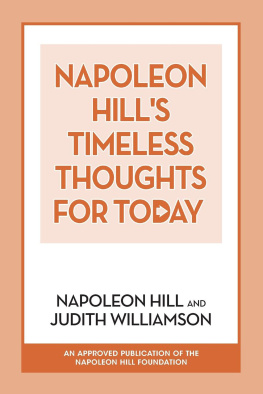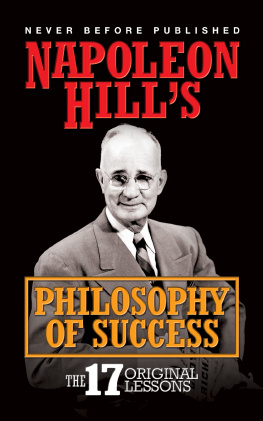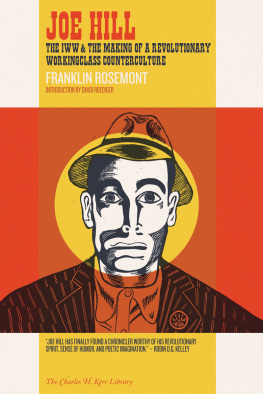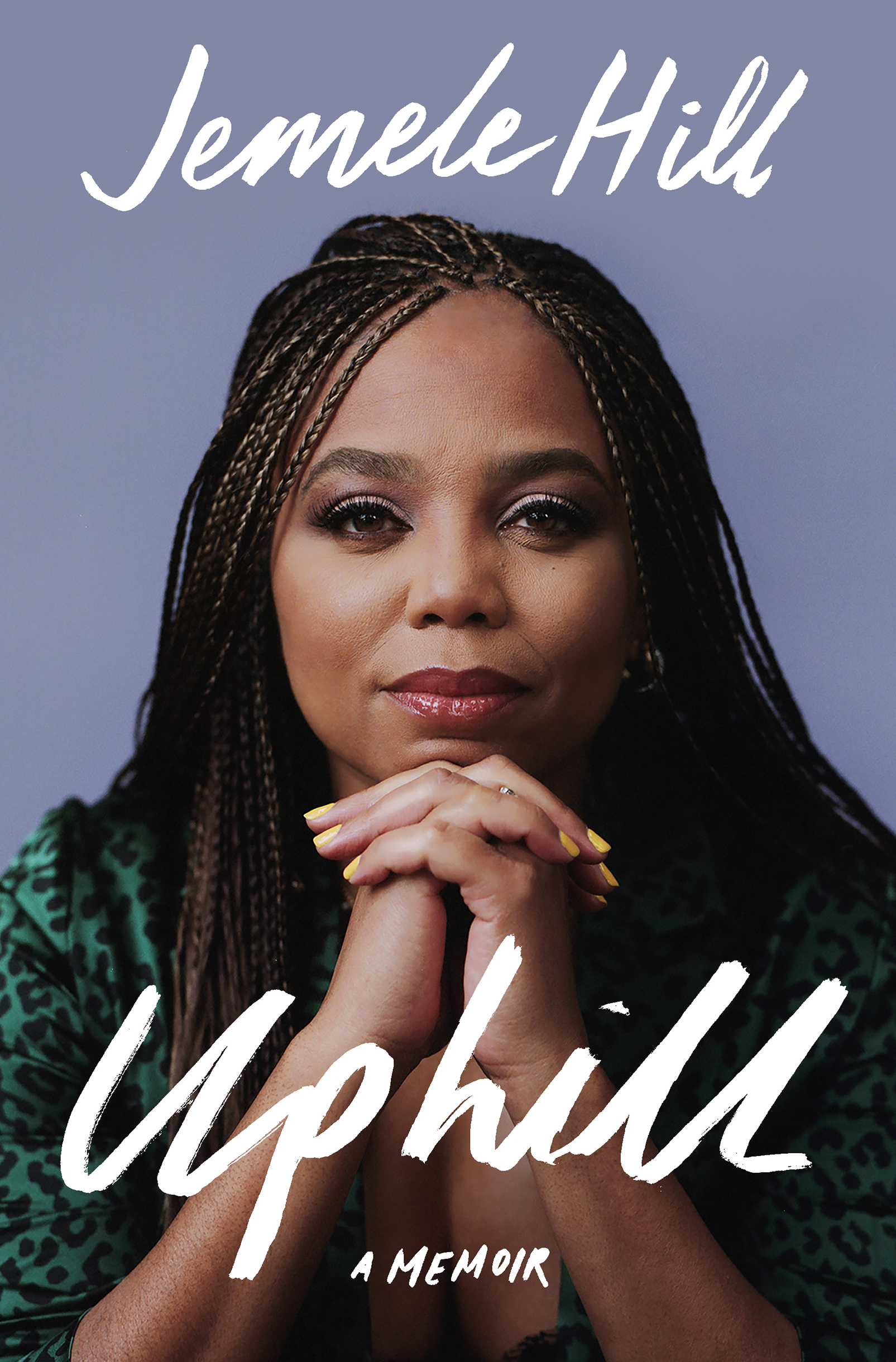Contents
Guide
Pagebreaks of the print version

The author and publisher have provided this e-book to you for your personal use only. You may not make this e-book publicly available in any way. Copyright infringement is against the law. If you believe the copy of this e-book you are reading infringes on the authors copyright, please notify the publisher at: us.macmillanusa.com/piracy.
I started going to therapy on a dare.
Dare might be too strong of a word, but at the very least, I was motivated by a challenge. A few years ago, my mother told me that she thought I was angry. At what, I asked? She believed I often expressed anger toward her, blaming her for my difficult childhood, and thus released all this unresolved anger not only on her, but the world.
Her observation, which ironically did make me angry, came the week of Thanksgiving in 2017, during one of the most tumultuous times in my life. My mother and I were in Orlando, Florida, where I lived full-time for eight years before moving to Bristol, Connecticut, in 2013 to cohost a daily television show on ESPN.
I had yet to sell my house in Orlando, so spending Thanksgiving there, rather than in the cold climate of either Detroit or Connecticut in the late fall, was a wise choice. But besides the frigid temperatures, I needed to escape Bristol. I was on the verge of leaving a high-profile job that was paying me millions per year. About a month before my mother and I met up in Orlando, I had served a two-week suspension without pay for violating ESPNs social media policy for the second time in less than a month.
It all started on September 11, 2017, when I unleashed a series of tweets on how unfit Donald Trump was as a president. But the tweet that caught the most attention was when I hit send on Donald Trump is a white supremacist who has largely surrounded himself w/ other white supremacists. ESPNs social media policy forbids its employees from personally attacking politicians or taking political stances.
But I here I was, a high-profile Black woman calling the president of the United States a full-on racist.
My tweets created a firestorm for ESPN at an inopportune time. Since Trumps presidency began in 2016, the right-wing media had grown increasingly more vocal about accusing ESPN of being too liberal and political during Trumps time in office. As far as I was concerned, this was coded racism as it happened to coincide with ESPN putting more people of color and women in high-profile positions. The more of us they saw on the network, the louder they got. Their complaints made ESPN sensitive to such criticism and even more determined to stay apolitical, though that seemed to be almost impossible during such politically divisive times. But my tweets forced ESPN to pick a sideand the side the network chose wasnt mine.
I avoided a suspension or probably worse, even though Sarah Huckabee Sanders, Trumps press secretary in 2017, voiced that what I had tweeted about the president was a fireable offense. Of course Trump tweeted about it, too, but never mentioned me by name. But he did tweet that ESPN owed him an apology.
Although those tweets became a huge national story, I thought eventually everything would return to normal and I wouldnt be trending on Twitter for days. But almost a month later I was back in trouble for something I had tweeted about Dallas Cowboys owner Jerry Jones regarding his public threat to his players if any of them took a knee during the national anthem to protest racial injustice.
This time, Trump did tweet about me and, not surprisingly, he couldnt resist being juvenile and petty. With Jemele Hill at the mike, it is no wonder ESPN ratings have tanked, in fact, tanked so badly it is the talk of the industry!
Hey, at least he spelled my name right.
Trump tweeting about me blew my life up. Suddenly I was being discussed on every major network. A barrage of think pieces were written about me, as people debated if I, as a Black woman, was being treated unfairly, and in the age of Trump, was it even realistic to expect journalists to be neutral about a president who constantly attacked the media and repeatedly called reports about his corruption and unethical and boorish behavior fake news.
By the time I got to Orlando for Thanksgiving, I had pretty much decided I was leaving ESPN and was plotting my exit strategy. But when I told my mother that I wanted to leave, I didnt get the reaction I expected at all.
I had wanted my mothers full support. Eventually that came, but it wasnt there at the onset. I didnt like my job as a SportsCenter host and when I told her why, it felt like she didnt hear me at all. We dont let anybody run us off our job, she said using an aint-that-right-girl kind of tone, but I wasnt in a kee-keeing mood.
Of course, I expected my mother to be practical because Black folks usually dont have the luxury of walking away from jobs like the one I had. I just didnt expect that she would not only ignore my feelings but also accuse me of being brainwashed.
Dont let those people use you for their cause because you dont owe them anything, she had said.
I wondered immediately who she thought those people were. Did she mean Black people? As in, the same Black people who were speaking out in support of me all over social media and were a huge reason I still had a job at ESPN?
For my mother to suggest I was a puppet was not only hurtful, it was outright offensive. I was keenly aware that a deeper and larger struggle was taking place in this country that was way beyond my verbal spat with Trump. Black people were fighting every damn day for survival, freedom, and empowerment. As much as Trump inspired racists to be unrepentant, the feelings he stoked had been there since this country was born.
I felt intrinsically connected to that struggle because its impossible to be Black in America without feeling that way, unless you actively and willfully choose not to. I wanted to use my platform to make things better, not because I felt pressure to do so, but because it was my duty.
My criticisms of the president were just an extension of the reason I became a journalist in the first place. It may sound corny or naive, but I believe deeply in the journalistic credo that journalists are supposed to comfort the afflicted and afflict the comfortable.
My mother, however, interpreted my passionate pushback against her view of my situation as anger that stemmed from something that extended beyond the current moment. She did not understand that almost nothing triggers me more than when people try to tell me who I am.
In general, Black women hate being described as angry. If were not in the mood to be accommodating, if we want room to be unapologetic and stand on our principles, then people view that as anger. Instead, were really just exercising our right to avoid nonsense.
I had drawn a boundary with my mother, and we know how much mothers hate those, especially when these boundaries are drawn by their own children. I know my mother meant well, but I needed her support more than her pragmatism.
As my mother and I argued, there was this small, niggling whisper in the back of my mind. What if shes right? What if there is some vat of anger deep inside of me that Id overlooked all these years?
My mothers favorite story to tell about me is the day I was born. Its also my favorite story to hear her tell about me. In part because she tells it with such joy. But I cant help but wonder: Is she happy to share the story of my birth because Im her only child? Or is it because it involves her nearly beating my family in Monopoly?













